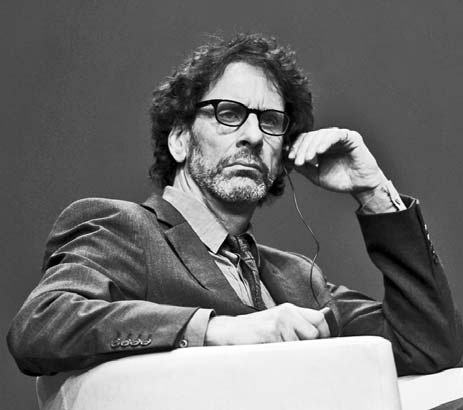Joel Coen talks up Chinese film's prospects
Updated: 2011-11-21 09:59
By Todd Balazovic (China Daily)
|
|||||||||
 |
|
Six-time Academy Awards winning filmmaker Joel Coen visits Beijing for the first time to take part in the US-China Forum on the Arts and Culture. Feng Yongbin / China Daily |
The Coen Brothers auteur says he anticipates the country will become a major force in moviemaking and would be tempted to work here himself. Todd Balazovic reports.
Considering it has a potential market of more than 1.3 billion, Joel Coen, the oldest of the famed Coen Brothers director/writer duo, says China's movie market is on the brink of global stardom.
Visiting China's capital for the first time as part of the US-China Forum on the Arts and Culture, the six-time Academy Awards winning filmmaker - known for such films as The Big Lebowski, True Grit, and Fargo - is upbeat about what may be the world's next biggest movie market.
"This is an industry that is just, it seems to me, poised to explode," he says on Friday during an interview with China Daily in the Little Theater VIP room, in the basement of the National Center for Performing Arts, having previously talked with some of the leading lights in the country's film industry.
"It seems like something that's really going to take off - but it will be interesting to see what direction that goes."
Coen says he is curious about how China's burgeoning movie industry will manage the balancing act between private and State funding, a topic brought up in discussion the day before.
"It will be interesting to see how the movie industry here develops and what that means in terms of content."
While he is clear about his own interest in seeing the industry prosper, he says for those in Hollywood, China is viewed with curiosity, and possibly a little confusion.
"Americans don't have a real clear picture of what Chinese society is like right now. There's a lot of distortion, there's a lot of political news. But there isn't a lot of news or a lot of exposure on how ordinary Chinese people live, or how Chinese artists work," he says.
"I think more people would be interested in seeing more movies from China."
As to whether or not the US film industry is eyeing a chance to take advantage of the Middle Kingdom's growing middle class, Coen says, "America's movies go all over the world except, in a sense, China - in terms of a really significant market."
"American filmmakers are both curious about Chinese culture and Chinese movies, but they're also interested in being able to show their own movies."
Garbed in a dark overcoat and a pair of rugged gray fingerless gloves - a get-up you're more likely to see on the wintry streets of New-York than in the sun-laden valleys of California - Coen makes a point of distancing himself from the money-minded showbiz machine, describing his relationship with Hollywood as nothing more than a "tangential connection."
Still, money must be made in order to create films.
And in an age where all kinds of media are spread freely across the Internet, Coen spotlights the need for movie-fans to play their part in the pricey art form.
"The way you want your movies to be seen is properly, in a theater, as they're meant to be viewed. That's even more important than money to a certain extent," he says.
"Making movies is a capital intensive enterprise, it's not something that you can really, at least at a certain level, go into your backyard or garage and do."
"These things cost money to make and therefore you should be able to make some money in their exploitation."
As to whether the artist, who prides himself on telling "American" stories, will ever leave his comfort zone and come to China for a future project, he says "not immediately", but it's something he is considering.
"It would be very tempting to do it, both for the cultural and the economic advantage, I suppose. I certainly wouldn't rule it out."











